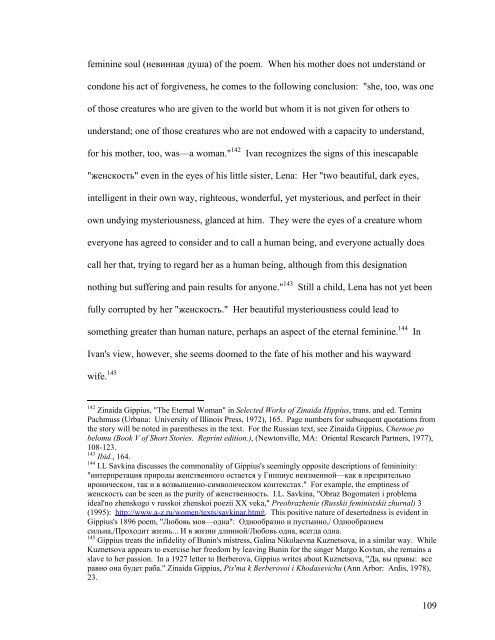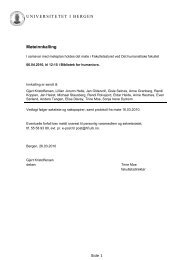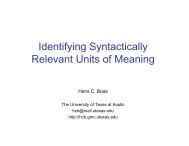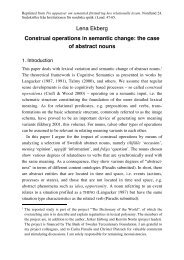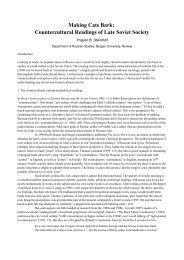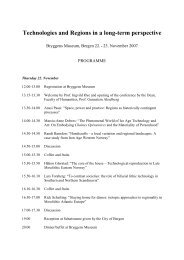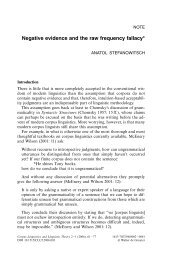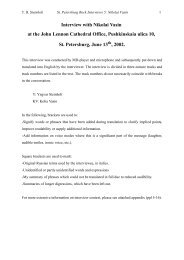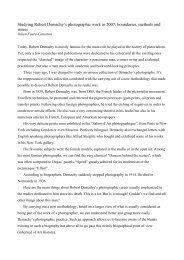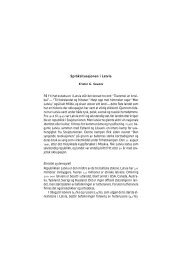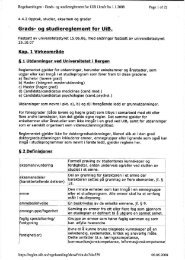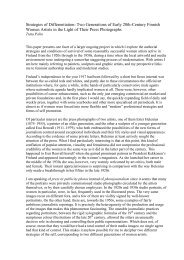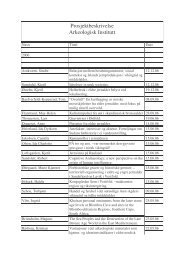THE BOOK OF POEMS IN TWENTIETH-CENTURY ... - TopReferat
THE BOOK OF POEMS IN TWENTIETH-CENTURY ... - TopReferat
THE BOOK OF POEMS IN TWENTIETH-CENTURY ... - TopReferat
Create successful ePaper yourself
Turn your PDF publications into a flip-book with our unique Google optimized e-Paper software.
feminine soul (невинная душа) of the poem. When his mother does not understand or<br />
condone his act of forgiveness, he comes to the following conclusion: "she, too, was one<br />
of those creatures who are given to the world but whom it is not given for others to<br />
understand; one of those creatures who are not endowed with a capacity to understand,<br />
for his mother, too, was—a woman." 142<br />
Ivan recognizes the signs of this inescapable<br />
"женскость" even in the eyes of his little sister, Lena: Her "two beautiful, dark eyes,<br />
intelligent in their own way, righteous, wonderful, yet mysterious, and perfect in their<br />
own undying mysteriousness, glanced at him. They were the eyes of a creature whom<br />
everyone has agreed to consider and to call a human being, and everyone actually does<br />
call her that, trying to regard her as a human being, although from this designation<br />
nothing but suffering and pain results for anyone." 143<br />
Still a child, Lena has not yet been<br />
fully corrupted by her "женскость." Her beautiful mysteriousness could lead to<br />
something greater than human nature, perhaps an aspect of the eternal feminine. 144<br />
In<br />
Ivan's view, however, she seems doomed to the fate of his mother and his wayward<br />
wife. 145<br />
142 Zinaida Gippius, "The Eternal Woman" in Selected Works of Zinaida Hippius, trans. and ed. Temira<br />
Pachmuss (Urbana: University of Illinois Press, 1972), 165. Page numbers for subsequent quotations from<br />
the story will be noted in parentheses in the text. For the Russian text, see Zinaida Gippius, Chernoe po<br />
belomu (Book V of Short Stories. Reprint edition.), (Newtonville, MA: Oriental Research Partners, 1977),<br />
108-123.<br />
143 Ibid., 164.<br />
144 I.L Savkina discusses the commonality of Gippius's seemingly opposite descriptions of femininity:<br />
"интерпретация природы женственного остается у Гиппиус неизменной—как в презрительно<br />
ироническом, так и в возвышенно-символическом контекстах." For example, the emptiness of<br />
женскость can be seen as the purity of женственность. I.L. Savkina, "Obraz Bogomateri i problema<br />
ideal'no zhenskogo v russkoi zhenskoi poezii XX veka," Preobrazhenie (Russkii feministskii zhurnal) 3<br />
(1995): http://www.a-z.ru/women/texts/savkinar.htm#. This positive nature of desertedness is evident in<br />
Gippius's 1896 poem, "Любовь моя—одна": Однообразно и пустынно,/ Однообразием<br />
сильна,/Проходит жизнь... И в жизни длинной/Любовь одна, всегда одна.<br />
145 Gippius treats the infidelity of Bunin's mistress, Galina Nikolaevna Kuznetsova, in a similar way. While<br />
Kuznetsova appears to exercise her freedom by leaving Bunin for the singer Margo Kovtun, she remains a<br />
slave to her passion. In a 1927 letter to Berberova, Gippius writes about Kuznetsova, "Да, вы правы: все<br />
равно она будет раба." Zinaida Gippius, Pis'ma k Berberovoi i Khodasevichu (Ann Arbor: Ardis, 1978),<br />
23.<br />
109


